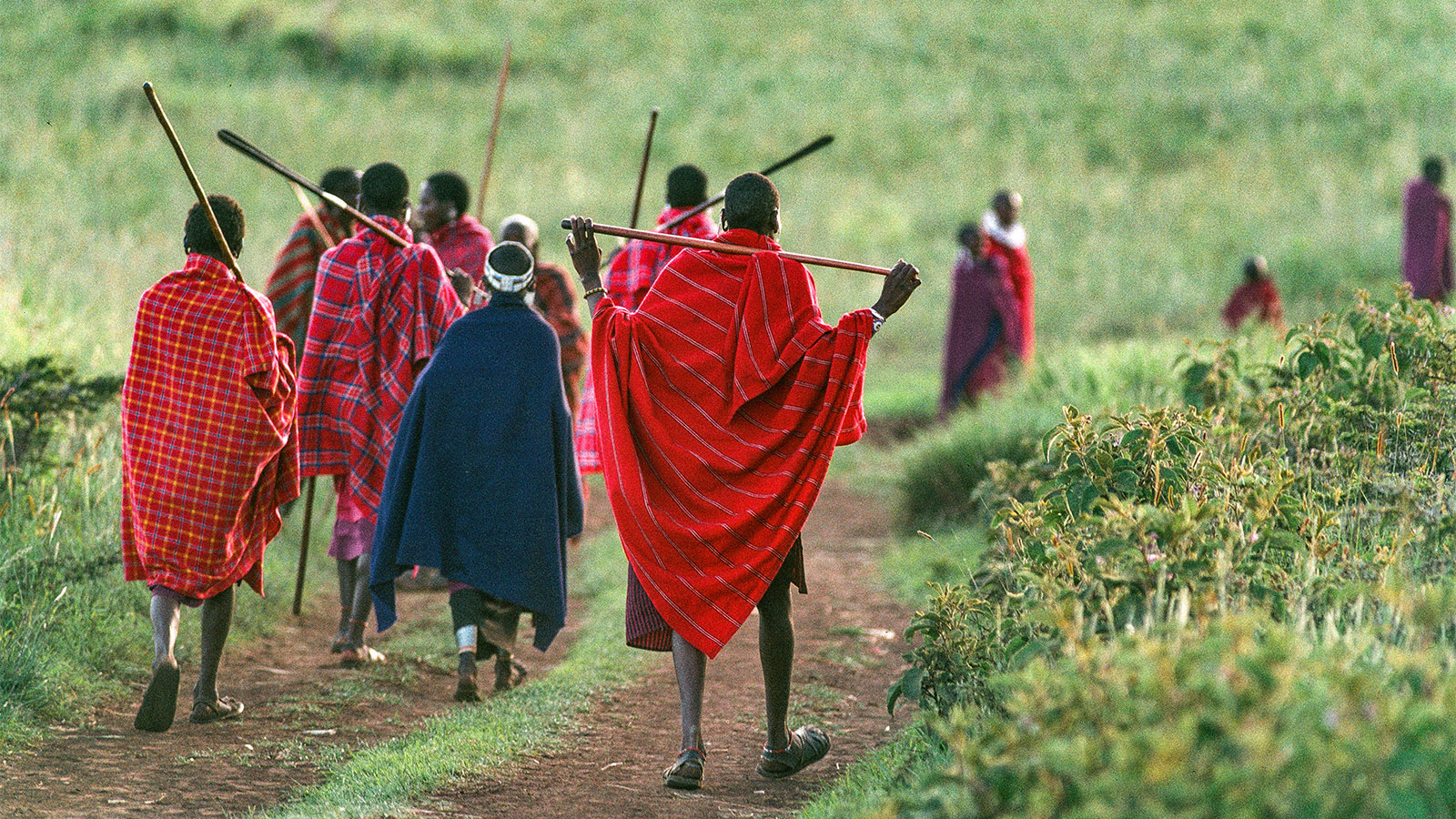State prosecutors in the United Republic of Tanzania dropped murder charges this week against twenty-four Indigenous Maasai, accused of killing a police officer during a state-sponsored eviction campaign to remove Maasai from their land and create a protected game reserve.
The incident, which occurred in June, involved hundreds of security officers attempting to remove Maasai people from their homelands in Loliondo, in Northern Tanzania, and left dozens of Maasai injured or shot. In the aftermath, many Maasai fled across the border to Kenya for medical treatment while others were arrested or confined to their homes. During the conflict, a police officer died after reportedly being stabbed by a spear. In July, the Tanzanian government arrested twenty-five Maasai, charging them with the officer’s murder. One person was later released, but the remaining twenty-four men and women remained in prison until their release Tuesday.
“It is a good day for those who have been in prison for months now and their families, but at the same time it is outrageous that these innocent people have been in prison for this many months,” said Anuradha Mittal, executive director of the Oakland Institute, a U.S.-based human rights nonprofit. “It shows just how wrong the actions of the Tanzanian government are to criminalize the land defenders.”
But despite the legal victory, experts say the Maasai still have significant challenges to protecting their land and rights. The Tanzanian government is still pushing to create a protected game reserve in Loliondo, which would take approximately 1,500 square kilometers of the 4,000 square kilometer area currently inhabited by the Maasai. Tanzania plans to let Otterlo Business Company, a United Arab Emirates based company, manage the reserve.
In June, a group of United Nations experts expressed concern at Tanzania’s plans to displace Maasai people without their free, prior and informed consent, as required under international human rights law and standards. “This will cause irreparable harm, and could amount to dispossession, forced eviction and arbitrary displacement prohibited under international law,” the U.N. said.
In the nearby Ngorongoro Conservation Area, which is a UNESCO World Heritage Site, additional Maasai communities are also facing removal in order to protect and preserve the areas biodiversity and ecosystems – a practice many analysts describe as “fortress conservation,” a conservation model that relies on creating protected areas that function in isolation of human disturbance. Notably, fortress conservation relies on removing or barring communities that have traditionally relied on those areas from entering or living. If government efforts are successful, nearly 150,000 Maasai people in the Loliondo and Ngorongoro areas will be removed.
“It is no different from the old racist neocolonial top down conservation models, which are Western based,” Mittal said. “Unfortunately, despite the independence of countries, they continue to be shackled in this ideology, which believes that nature has to be protected from men.”
In October, the United Nations Special Rapporteur on the Rights of indigenous peoples, Francisco Calí Tzay, called attention to the Maasai’s situation in a report to the General Assembly on protected areas. In response, a representative from Tanzania insisted that any relocations of Maasai are voluntary and Indigenous peoples are not legally recognized in Tanzania. Calí Tzay has requested to visit Tanzania to further investigate, but the Tanzanian government has yet to respond.
Mittal says that until the world changes its conservation model, Indigenous peoples will continue to suffer from eviction, violence, and criminalization. “It’s a failure of the international community to deal with the climate crisis, but instead have the poor, Indigenous, and marginalized pay for it,” Mittal said.
The Tanzanian government and representatives for the Maasai did not immediately respond to a request for comment.



